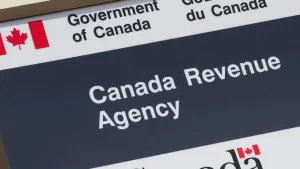As the Bank of Canada and other central banks around the world continue to raise interest rates in efforts to rein in inflation, borrowing has become considerably more expensive. How might this affect you, as a medical student, resident physician, or new-in-practice physician? Interest rate on medical student loans.
Following the Bank of Canada’s direction, Canada’s six big banks followed suit and raised their prime lending rate. Many borrowing products, such as lines of credit and variable-rate mortgages, are based on the bank’s prime lending rate.
As the economy continues to recover and grow, and inflation remains elevated, the Bank says that it expects interest rates will need to rise further to maintain what it regards as a healthy level of long-term inflation, 2%.
Government student loans
If you have a student loan, there’s currently no change. Interest accrual on Canada Student Loans and Canada Apprentice Loans was temporarily paused beginning in 2020 and becomes permanent April 1, 2023.
Lines of credit
If you have a line of credit that you used or are using to finance your education, you will be feeling the impact.
For instance, if you’ve used $100,000 from your line of credit and were paying 2.7%, your interest cost per month was $225. At 6.7%, your cost will be $558.33 per month — a sizeable increase.
Let’s break things down further to show how this will affect borrowing throughout your studies.
As a medical student and resident physician you can borrow — up to $350,000 at some financial institutions — to finance your education.
Some banks also allow you to capitalize your interest payment, meaning rather than you making monthly interest payments while you complete your training, the monthly interest payment is added to your outstanding balance. As interest rates increase the amount you can borrow to pay for things like tuition, housing, and food is gradually eroded, with more of that limit going towards the increasing interest costs.
With interest rates rising it’s more important than ever to borrow only as much as you need in order to avoid unnecessary debt. Explore healthy money habits to help you budget through med school, and tap every source of income, including scholarships, bursaries, and grants, using our education financing guide.
What happens now?
If you are a resident, now earning a salary and with student debt to repay, you are likely asking yourself a lot of questions as the cost of borrowing increases: do I pay down my debt faster? Which debt should I pay down first? Can I start saving/investing?
The answers to these questions are never one-size-fits-all solutions; each person’s situation is unique.
Abdullah CPA is working with residents and new-in-practice physicians to help navigate these complex questions. Lets Connect.






